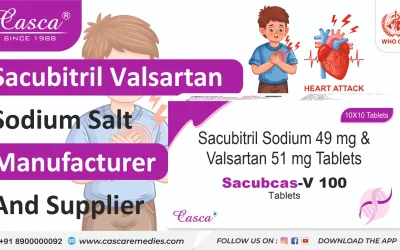Differences between PCD Pharma Franchise & Pharma Distributorship: Which one is better?
A career or business in the pharmaceutical industry can be built through a variety of business models. The PCD Pharma franchise and the Pharma Distributorship are two of the most well-known and successful business models. From a broad perspective, both models may appear similar, but they differ greatly in terms of operations, investment, and financial gains. In order to help entrepreneurs select the best business model for their career and the expansion and development of their company, we will attempt to clarify the topic in this article.
A Comparative Analysis of Financial Aspects
There are differences between the two business models’ financial roadmaps. In contrast, a Pharma franchise business offers greater financial rewards and is a less expensive investment. On the other hand , pharma distributorship requires a larger initial investment because it buys products from pharmaceutical companies, and its profit margins are also lower. Additionally, a distributorship needs more capital for supply management, logistics, transportation, and inventory stocking, whereas a PCD company needs less capital for marketing and business operations.
Management of Operations
The PCD Pharma franchise company in India offers broad support and training to its franchisees, which facilitates their business operations. On the other hand, distributors are required to manage everything independently without any assistance or oversight from pharmaceutical firms. Compared to distributorship, the PCD franchise business has a significant operational advantage. Franchises are less risky than distribution companies because they provide ongoing assistance, support, training, and supervision.
Freedom and Governance
The PCD pharma franchise business model is inferior to pharma distribution models in terms of control and freedom. However, there is a greater chance that this independence and control will not result in enough revenue and profits. Conversely, the parent pharmaceutical company oversees and drives the PCD franchise business, never abandoning its franchise partner in the middle of the road. Numerous pharmaceutical companies grant exclusive franchise rights and the freedom to run their franchise independently within their boundaries. Therefore, franchise businesses are more stable and secure, but distribution businesses do have some advantages in terms of control and independence.
Variations in marketing
In the pharmaceutical distribution industry, a distributor must independently persuade retailers and other medical professionals to buy their products. However, in the PCD model of the pharma franchise, the franchisee is responsible for marketing and distributing the parent company’s products, which are typically well-known and marketable. In actuality, though, physicians and pharmacists prefer franchise owners when it comes to dealing with pharmaceutical products. Due to the fact that they are bound by the obligations of a well-known and respected pharmaceutical company. Pharmaceutical products are therefore easier to market and distribute through franchises, while distribution companies need to put in more marketing work to win over medical professionals.
Final Verdict
To sum up, franchising is a far better option than distributorship in the pharmaceutical sector. For the business, it offers stability and security. Additionally, less money must be spent on the general operations of the company. Operating under the auspices of pharmaceutical companies is always a smart move for improved business and long-term expansion. One of the top franchises in the pharmaceutical sector is Medliva Lifesciences. As a PCD Pharma franchise company in India, we consistently offer important information and details about the pharmaceutical industry.
Download Updated Price List
Recent Posts
- Linagliptin & Metformin Hydrochloride Tablet Manufacturers & Suppliers
- Silodosin Dutasteride Capsule Manufacturer and Supplier
- Linagliptin Metformin Hydrochloride Tablet Manufacturers and Suppliers
- Chlorhexidine Gluconate Solution Manufacturers and Suppliers
- Cephalexin 250mg Manufacturers & Suppliers in India






